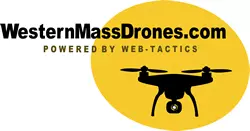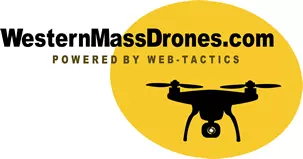Why We Need More Women Drone Pilots
Despite this rapid growth, a noticeable gender gap persists in drone piloting. Women make up only about 6% of certified drone pilots in the United States, reflecting a broader global trend of male dominance in this field. This article explores the reasons behind this disparity and highlights the importance of encouraging more women to enter the industry. By understanding the challenges and opportunities, we can work towards a more inclusive and innovative future in drone technology.
Watch The Video!
The Current Landscape of Drone Piloting
Drones have expanded across various sectors, making them indispensable tools in industries like agriculture, where they monitor crop health; conservation, where they track wildlife and environmental changes; logistics, for efficient delivery systems; and cinematography, providing unique aerial perspectives.
Despite this widespread adoption, the gender distribution among drone pilots remains heavily skewed. According to the Federal Aviation Administration (FAA), as of 2023, only about 6% of certified drone pilots in the United States are women. This statistic underscores the need for a more balanced representation to foster diverse perspectives and innovations.
Globally, the scenario is similar. In countries with burgeoning drone markets, such as China and India, the proportion of women in the drone industry is equally low. This disparity highlights a significant opportunity to bring more women into the fold, benefiting from their unique insights and approaches to technology and problem-solving.
Challenges Faced by Women in the Drone Industry
Several challenges contribute to the underrepresentation of women in the drone industry. Societal and cultural barriers often dissuade women from pursuing careers in STEM (Science, Technology, Engineering, and Mathematics), encompassing drone technology. Stereotypes and gender biases perpetuate the notion that tech-oriented careers are more suited for men, creating a psychological barrier for many women.
Additionally, the drone industry's lack of representation and role models further exacerbates the issue. When young women do not see themselves reflected in the industry, it becomes harder for them to envision a career path in this field. This absence of female mentors and leaders creates a cycle that discourages new entrants.
Access to resources and training is another significant hurdle. Women often have limited opportunities to engage in hands-on drone training or may find it challenging to access the same educational resources as their male counterparts. This gap in training and education leads to fewer women qualifying for certification and professional roles in the drone industry.
The Importance of Gender Diversity in Drone Piloting
Gender diversity in drone piloting is not just a matter of equality; it is crucial for the growth and innovation of the industry. Diverse perspectives lead to innovative solutions that can address complex challenges more effectively. Women bring unique viewpoints and approaches to problem-solving, which can enhance the creativity and efficiency of drone operations.
Incorporating more women into the drone industry promotes more ethical and sustainable practices. Women are often at the forefront of initiatives prioritizing environmental conservation and community welfare. Their involvement can help steer the drone industry towards practices that benefit society and the environment.
Furthermore, a diverse workforce can improve the public perception of the drone industry. As the industry grows, it must build trust and acceptance among the broader population. Showcasing a balanced representation of men and women can enhance the industry's image and encourage broader societal support.
Inspiration from Women Pilots in Commercial and Military Aviation
The achievements of women pilots in commercial and military aviation offer valuable inspiration for aspiring female drone pilots. Women have broken barriers in these traditionally male-dominated fields, demonstrating exceptional skill, leadership, and resilience.
Women often possess personality traits that make them ideally suited for drone piloting. Traits such as attention to detail, strong communication skills, and multitasking ability are crucial for successful drone operations. Additionally, women tend to approach problem-solving with thoroughness and a collaborative mindset, which is essential in managing drone technology's complexities and ensuring safe, efficient missions.
In commercial aviation, women like Captain Tammie Jo Shults, who safely landed Southwest Airlines Flight 1380 after an engine failure, showcase the competence and calm under pressure that women bring to the cockpit. Their success stories highlight the potential for women to excel in high-stakes environments, a trait equally valuable in drone operations.
Military aviation also provides numerous examples of women who have excelled in challenging roles. For instance, Major General Jeannie Leavitt became the first female fighter pilot in the United States Air Force and later the first woman to command a USAF combat fighter wing. These trailblazers have paved the way for greater acceptance and opportunities for women in aviation, setting a precedent for the drone industry.
Encouraging More Women to Become Drone Pilots
To close the gender gap in drone piloting, targeted efforts are needed to encourage more women to enter the field. Educational programs that promote STEM subjects to young girls are a crucial starting point. Initiatives like Girls Who Code and Women Who Drone provide valuable resources and support for women interested in technology and drone piloting.
Mentorship and networking initiatives can also play a significant role. Programs that connect aspiring female drone pilots with experienced professionals can provide guidance, support, and inspiration. Industry support and policies promoting gender diversity are essential to creating a more inclusive environment. Companies should actively seek to hire, train, and encourage women, ensuring equal opportunities at all levels.
Community and organizational efforts are equally important. Local drone clubs, industry conferences, and online forums can create spaces where women feel welcome and supported. Collaboration between educational institutions, industry leaders, and advocacy groups can amplify these efforts, leading to more significant progress.
The Role of Women-Owned Drone Companies
Women-owned drone companies play a pivotal role in shaping the industry's future. These companies not only provide valuable services but also serve as beacons of inspiration for other women considering a career in drones. These companies exemplify how women can lead successful drone operations, offering a range of drone services, from conservation efforts to commercial applications. By showcasing their achievements, we can highlight the impact of women-owned businesses on the industry and encourage more women to pursue entrepreneurship in the drone sector.
These drone companies often prioritize inclusive practices and create environments where diversity is valued and promoted. Their success stories demonstrate that women can thrive in the drone industry with the proper support and opportunities, driving innovation and growth.
Conclusion
Gender diversity in drone piloting is a matter of fairness and critical to the industry's advancement. By understanding the challenges and working to overcome them, we can create a more inclusive environment that benefits everyone. Encouraging more women to become drone pilots will bring diverse perspectives, innovative solutions, and ethical practices to the forefront.

